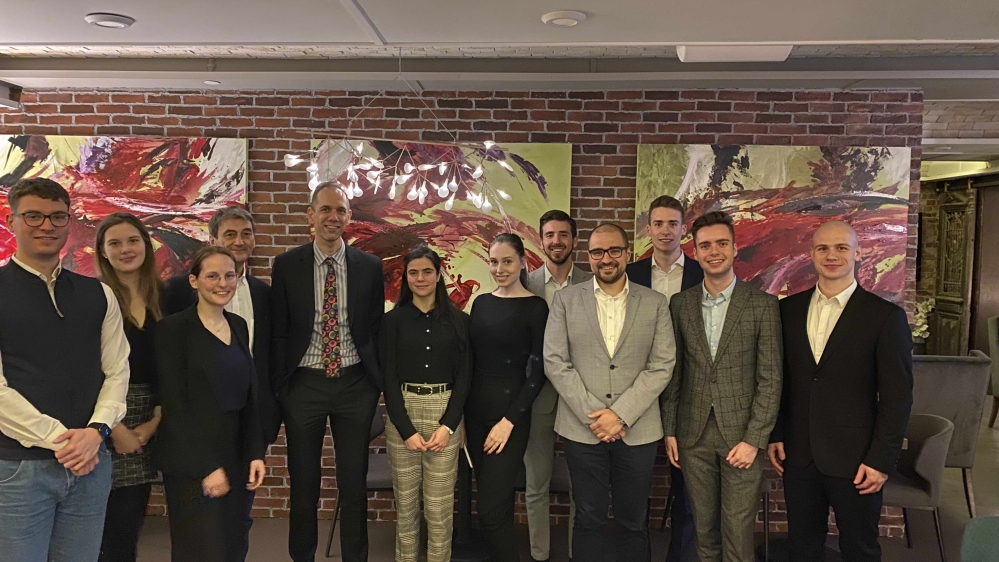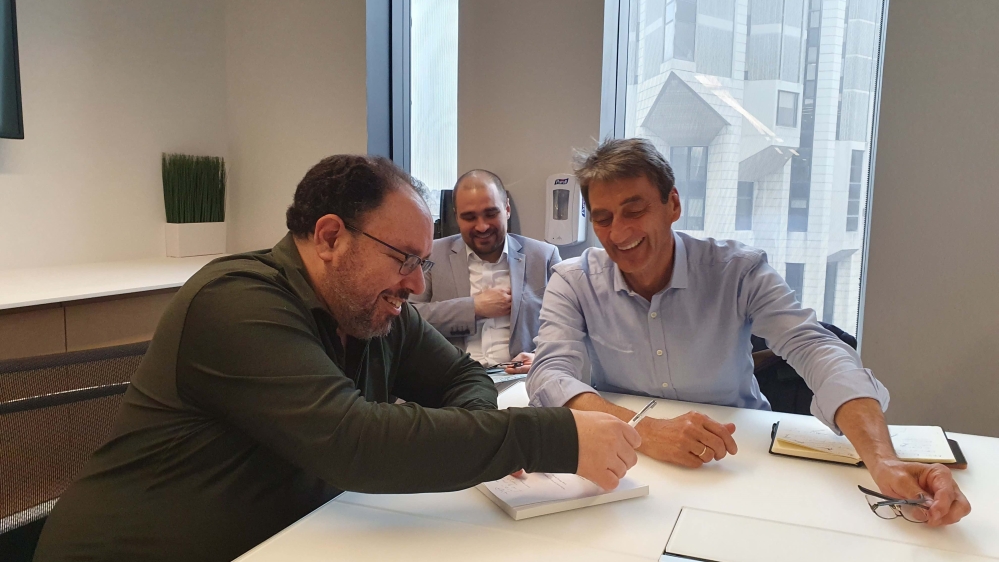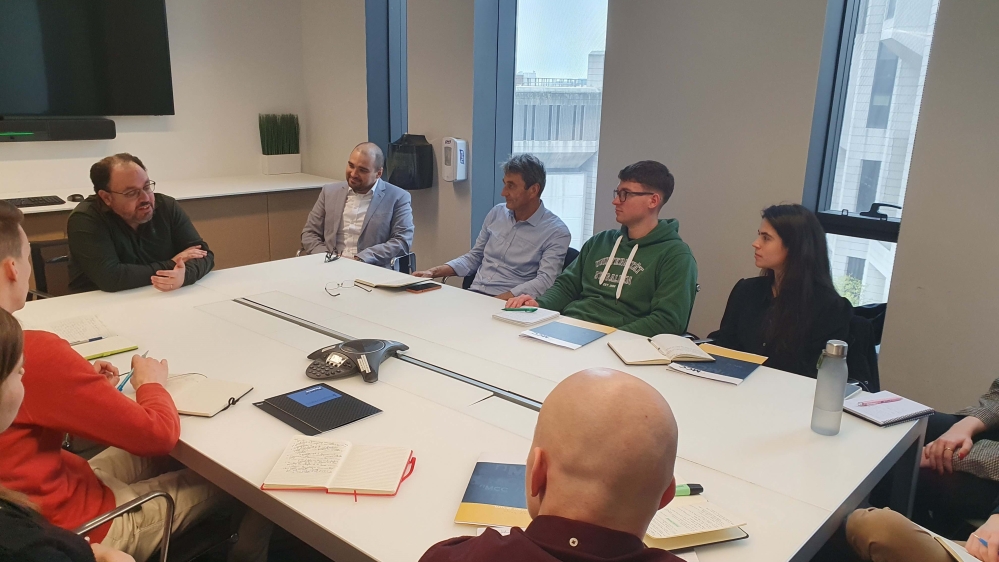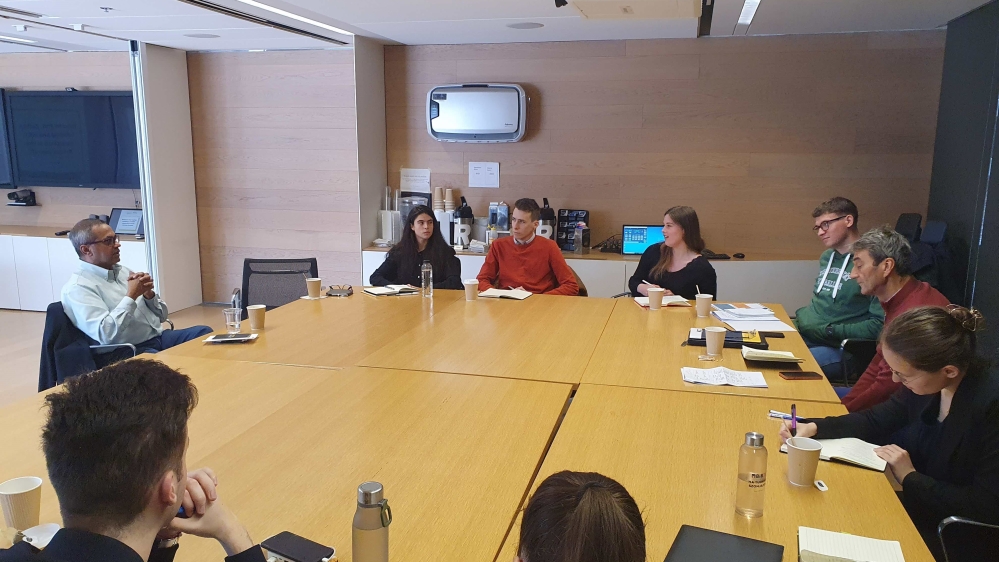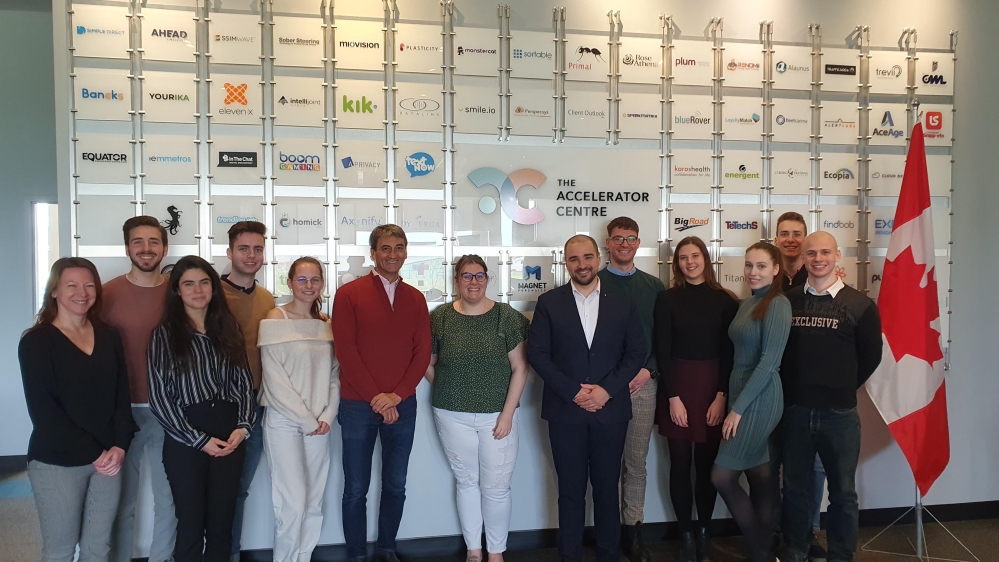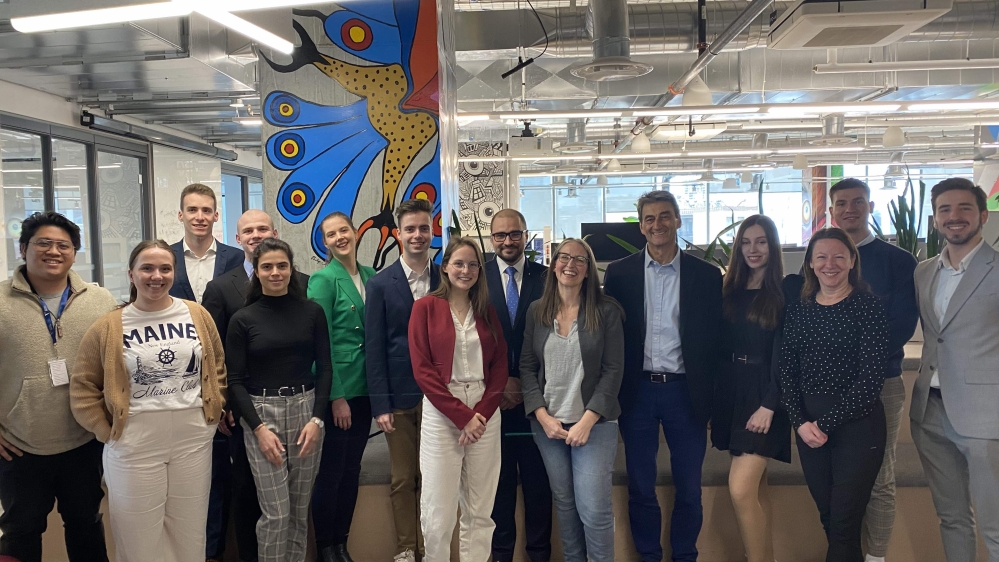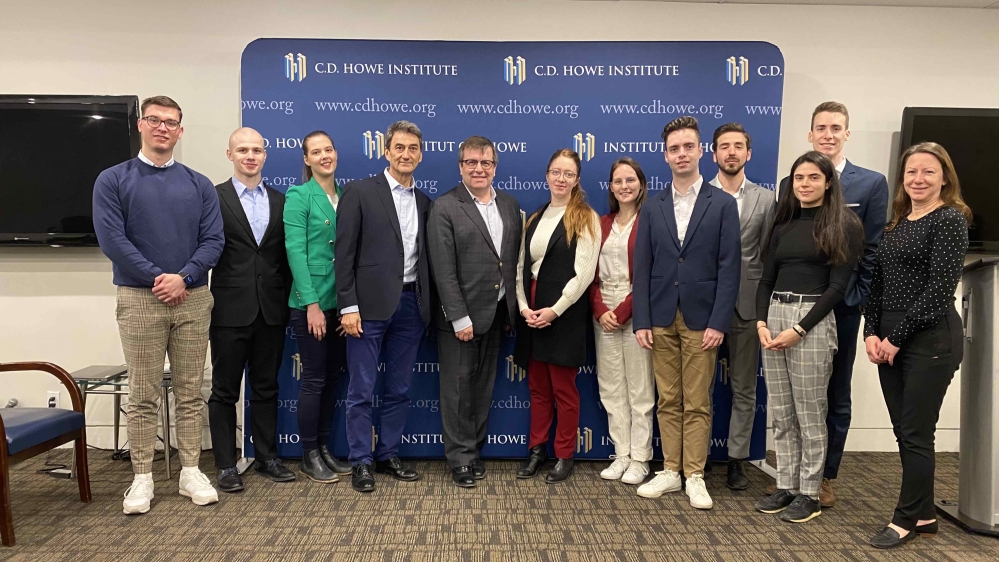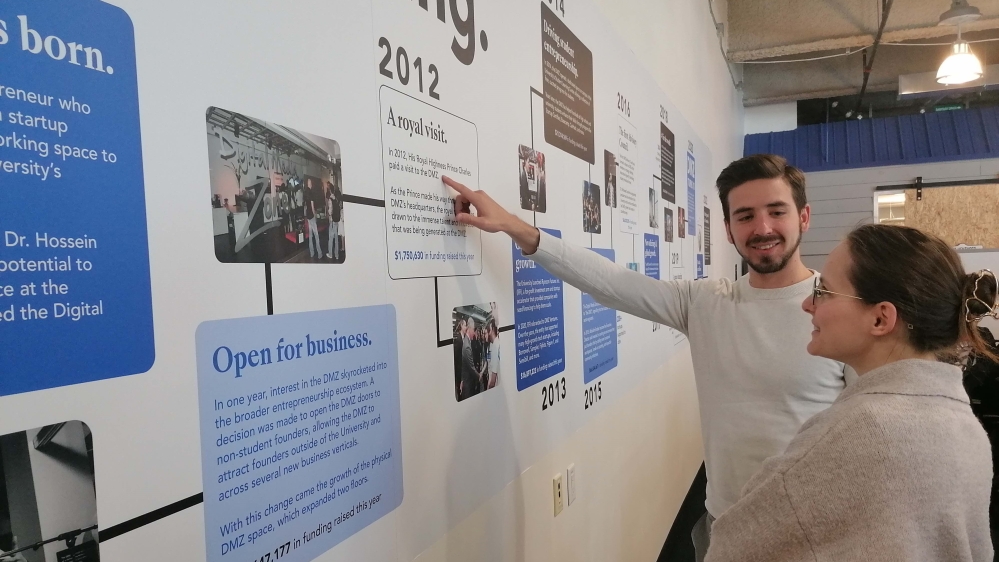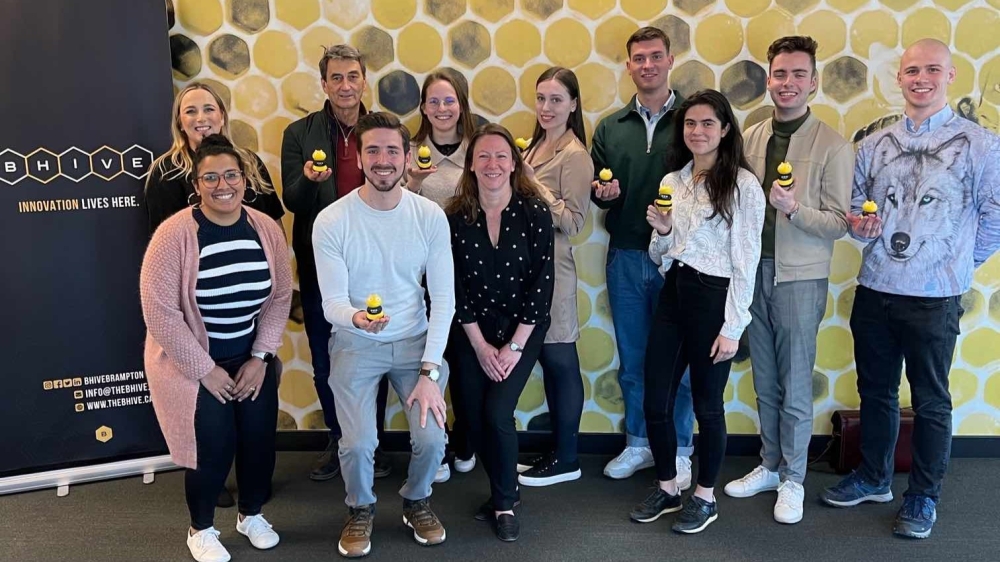Reading time: 4 minutes
Do you know where the world’s first Artificial Intelligence Strategy was written? Or why they call unicorns camels in Canada? Maybe you’re interested in the secrets of supporting successful startups? This and much more was discussed during the Study Tour of the Centre for Next Technological Futures in Canada, Ontario.
Canada, a land of almost 40 million people, is known for its beautiful landscapes, attractions and the diversity of cultures represented. With over 450 self-reported ethnic and cultural backgrounds, there is an international pulse in the country, with many ideas and traditions blending in a colorful cavalcade. How do you address such a diverse group of people, accommodating to the different needs? Prof. Dilip Soman (BEAR) talked about the issue and how behavioral economics can be used to help, drawing attention to the various methods of nudging one can resort to.
The incubators and accelerators also profit from the wide variety of skills, mindsets and backgrounds represented in the country. The students of the Centre for Next Technological Futures had the chance to talk with several of these organizations, inquiring about their business model, activities and successes. They visited the world's top-ranked Canadian startup incubators, - the Accelerator Centre (Waterloo), Communitech (Kitchener), DMZ (Toronto) and BHive (Brampton)-discussing about the secret sauce of the institutions. Values and KPI-s proved to be very important, but the biggest emphasis was on building a useful and well-functioning mentor network. They gather people with as many areas of expertise as possible, from whom startups can ask questions, get insight and seek advice. The goal is to make as much startups unicorns as possible, or, as they call it, camels. The reason behind this name change is that they strive for long-lived success and find camels to be much more resilient and enduring than unicorns.
AI was also a hot topic, the students got the chance to exchange thoughts with star economist Prof Joshua Gans, the co-author of the bestseller Prediction Machine at the Rotman Business School. Interesting insight was also shared in the Vector Institute, which was founded by the father of machine learning, Geoff Hinton. At CIFAR (Canadian Institute for Advanced Research), they discussed the world's first Artificial Intelligence Strategy. Canada currently has a National AI Strategy as well, focusing on the three hotspots in the country: Toronto, Montreal and Edmonton. The strategy has two phases, focusing on attracting and retaining talent, supporting national research communities, promoting Canadian AI and developing computer capacity with a funding of about 170 million dollars. The conversation was continued at the C.D. Howe economic policy think tank, where the topic of Artificial Intelligence was not neglected either. Research Director Daniel Schwanen reminded students that the role of entrepreneurs is essential in developing and bringing these AI products to market.
The Canadian innovation ecosystem also proved to be interesting. According to the beforementioned Daniel Schwanen, Canada is an imitator, always lagging a few steps behind its neighbor. A problem behind that is the brain drain to the USA, especially from Kitchener-Waterloo, because of the university links to Silicon Valley. The culture and banking system don’t tend to favor startups either, with much government intervention and old-fashioned structures. But there are success stories of innovation as well! Let’s take a look at the ‘BlackBerry Town’, the story of which is a roller-coaster. Starting high in the times of the rise of cell phones, employing thousands of professionals, achieving booming profit. Then falling due to not being able to keep up with the newest technological trends, leaving masses on the street. This proved to be a blessing in disguise though, because so much highly skilled cheap labor in one place served to nourish the birth of an entrepreneurial hub. Chuck Howitt, the author of the book Blackberry Town, talked about the details of the rise and fall of the town and its region, bringing many local insights to the table.
There could hardly have been a better way to bring the whole picture together, than listening to Greg Orencsak, Deputy Minister of Finance for the Province of Ontario. He talked about the financial and social situation and ecosystem in the province, highlighting the most important initiatives and enthusiastically answering student's questions.
 Anna Káldy
Anna Káldy